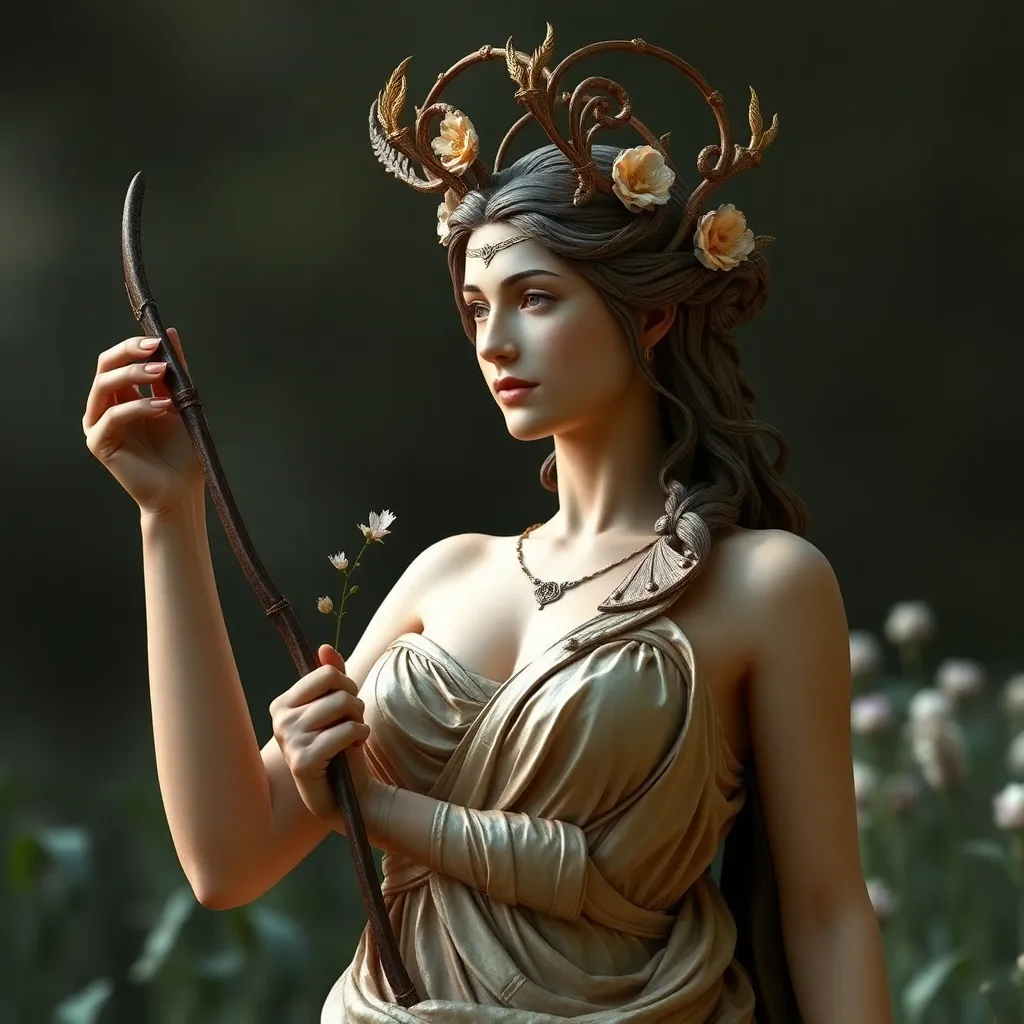Artemis and the Connection to Agriculture in Greek Mythology
I. Introduction
Artemis, one of the most revered deities in Greek mythology, is primarily known as the goddess of the hunt, wilderness, and childbirth. She embodies the spirit of the wild and the untamed aspects of nature. However, her significance extends beyond the hunt; agriculture played a crucial role in ancient Greek society, which was predominantly agrarian. This article aims to explore the connection between Artemis and agricultural practices, shedding light on her multifaceted role and influence in this vital aspect of ancient Greek life.
II. The Dual Nature of Artemis
Artemis is often celebrated as a dualistic figure, encompassing both nurturing and fierce characteristics. Her complexity is evident in her domains:
- Goddess of the hunt and wilderness: Artemis is portrayed as a skilled huntress, often depicted with a bow and accompanied by her loyal hounds. This aspect emphasizes her connection to the untamed elements of nature.
- Protector of women and childbirth: As a guardian of women, especially during childbirth, Artemis plays a vital role in fertility and motherhood.
- The agricultural aspect of Artemis: While less emphasized, Artemis also has connections to agriculture, particularly in her role as a goddess of fertility.
III. Artemis as a Fertility Goddess
Artemis’s association with fertility is significant, influencing both crops and livestock. Her role in promoting fertility is evident through various practices and rituals:
- Role in promoting fertility in crops and livestock: As an agricultural deity, Artemis was invoked to ensure the health and abundance of crops and livestock, symbolizing the interconnectedness of nature and human sustenance.
- Festivals and rituals dedicated to Artemis for agricultural prosperity: Numerous festivals were held in her honor, including the Brauronia, where women would celebrate fertility and the harvest.
- Connection between fertility, nature, and the goddess: Artemis represents the harmonious relationship between nature and human endeavors, emphasizing the importance of respecting the earth.
IV. Myths and Legends Linking Artemis to Agriculture
Many myths reflect Artemis’s relationship with agriculture, highlighting her connection to the earth and its bounty:
- Stories that emphasize her relationship with the earth and agriculture: Various myths depict Artemis as a nurturing figure who aids in the growth of plants and the well-being of animals.
- The myth of Artemis and the Nymphs: In this myth, Artemis is often associated with nymphs, who represent the spirits of nature and fertility. Together, they symbolize the protective and nurturing aspects of the earth.
- Symbolism of deer and other wildlife in agricultural contexts: The deer, sacred to Artemis, represents abundance and the balance of nature, playing a crucial role in the ecosystem that supports agriculture.
V. Religious Practices and Agricultural Rites
The worship of Artemis included numerous religious practices and rites that emphasized her agricultural associations:
- Temples and shrines dedicated to Artemis in rural areas: Many rural communities built shrines and temples to Artemis, where farmers would pray for favorable conditions for their crops.
- Seasonal festivals celebrating the harvest and spring planting: Festivals such as the Thesmophoria, although primarily dedicated to Demeter, also recognized Artemis’s role as a fertility goddess, celebrating the cycles of planting and harvest.
- Offerings made to Artemis for bountiful harvests: Farmers would leave offerings at her altars, such as fruits, grains, and livestock, as a gesture to secure her favor for plentiful yields.
VI. The Influence of Artemis on Agricultural Deities
Artemis’s role in agriculture can be compared to other deities, illustrating her importance within the pantheon of Greek mythology:
- Comparison with other agricultural gods and goddesses (e.g., Demeter): While Demeter is the primary goddess of agriculture, Artemis complements her role by focusing on fertility and the health of wildlife, which are essential for agricultural success.
- Artemis as a complementary figure to other fertility deities: Her dual nature allows her to work alongside other agricultural deities, enhancing the overall fertility of the land.
- Shared attributes and overlapping domains: Both Artemis and Demeter highlight the importance of fertility, growth, and the nurturing aspects of nature, showcasing the interconnectedness of their domains.
VII. Modern Interpretations of Artemis and Agriculture
The legacy of Artemis continues to influence contemporary agricultural practices and environmental discussions:
- Legacy of Artemis in contemporary agricultural practices: Modern agricultural methods often emphasize sustainability and respect for nature, echoing the values embodied by Artemis.
- Revival of ancient rituals and their significance today: Some communities have begun to revive ancient rituals dedicated to Artemis, celebrating the cycles of nature and the importance of fertility in agriculture.
- The relevance of Artemis in discussions about environmental sustainability: Artemis’s role as a protector of the wilderness aligns with contemporary movements focused on environmental conservation and sustainable farming practices.
VIII. Conclusion
Artemis’s multifaceted role in agriculture illustrates her significance beyond the realms of hunting and childbirth. Her connection to fertility, nature, and agricultural prosperity highlights the ancient Greeks’ understanding of the interdependence between humanity and the earth. As we reflect on the enduring impact of mythological figures like Artemis, we recognize their continuing relevance in modern discussions about agriculture and environmental sustainability. The interplay between mythology and agriculture remains a vital aspect of human culture, reminding us of the rich tapestry of beliefs that shape our relationship with the natural world.




